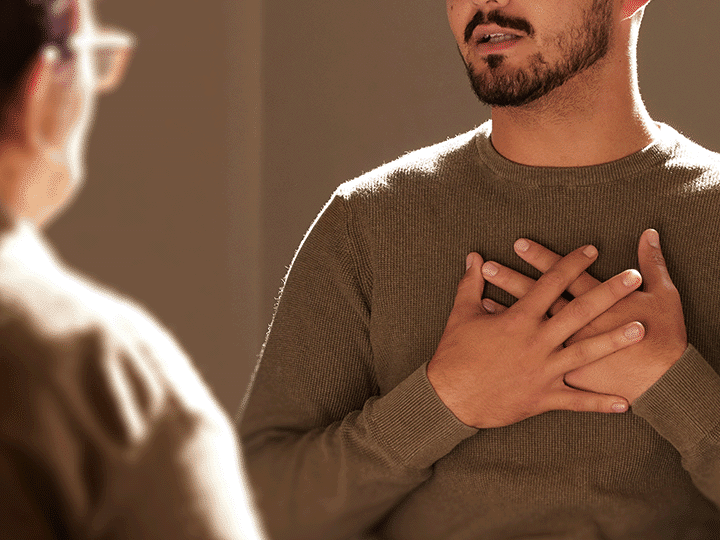Alcohol is a depressant and can have the opposite impact on the brain and body as Vyvanse. When the two are mixed together, undue stress may be put on the body’s systems in addition to the issues that can come from alcohol abuse and addiction.[2]
People who use both substances at the same time may experience increased side effects that are common to either substance, heart problems, impaired cognitive function, and mental health issues.[1] With continued use of these substances, a substance abuse or addiction disorder may develop.


Is Vyvanse Addictive?
What Happens When You Mix Vyvanse & Alcohol?
Vyvanse stimulates the central nervous system while alcohol works to depress or slow down the central nervous system. When the two substances are taken together, a number of effects can occur, such as these:
Masking Effect
Vyvanse may increase energy levels, blood pressure, and heart rate while alcohol serves to slow it down.[3] Taking both can make someone feel as if they are not as drunk as they actually are, putting them at risk for making poor choices while under the influence or alcohol poisoning if they drink too much.
Stress on the Cardiovascular System
Both substances put a strain on the heart, and drinking while taking Vyvanse can exacerbate issues like high blood pressure and rapid heart rate. Alcohol alone can increase the chance of experiencing arrhythmia or stroke in the period of time after drinking as well as over time. Adding a stimulant drug to the mix can further increase the likelihood of a potentially deadly cardiac event.[4]
Dehydration Potential
Taking Vyvanse can cause dehydration because it decreases the appetite, which leads to less fluid intake.[1] Alcohol is a diuretic, which means that it causes the body to release more fluid more rapidly than it otherwise would.[5] When taken together, the effect can be extreme dehydration and a related electrolyte imbalance.
Risky & Dangerous Behaviors
Vyvanse can increase energy but also elevate levels of agitation, anxiety, and paranoia when taken in too large amounts.[6] Alcohol can further exacerbate the issue by impairing judgment and cognitive function and increasing engagement in risky behaviors.[7] When both of these effects occur, it can result in dangerous choices, both for the person on the substance and the people around them.
Mental Health Problems & Mood Swings
The impact of alcohol and Vyvanse alone can result in a complex impact on mood. While small doses may cause feelings of relaxation and increased energy levels, taking too much can cause depression or anxiety.[6,8] When the two substances are combined, the risks of experiencing these issues increases, especially when use of Vyvanse goes beyond the bounds of a doctor’s prescription.
Increased Side Effects
Using either Vyvanse or alcohol can trigger side effects even when taken as prescribed or in moderation, respectively. When the two substances are combined, there may be a higher likelihood of experiencing those side effects. The risk that those side effects will be intense increases as well.
Substance Abuse & Addiction
Vyvanse is classified as a Schedule II controlled substance. Thus, using Vyvanse without a doctor’s prescription or beyond the bounds of a doctor’s prescribed use is termed substance abuse.[9]
Similarly, any use of alcohol that goes beyond moderation (one drink per day for women or two drinks per day for men) is considered alcohol abuse.[10] Heavy drinking is defined as more than four drinks in a sitting for women and more than five drinks for men.[10]
When Vyvanse is used in combination with alcohol, both of those criteria for substance abuse are met. If the behavior continues over time, it can mean a physical and psychological addiction to one or both substances.
Why Do People Typically Mix Vyvanse & Alcohol?
Everyone who uses both Vyvanse and alcohol has their own unique set of reasons for doing so. In some cases, it may be a lack of understanding of the effects of those substances in the body, which leads someone taking Vyvanse medically to have a drink or two innocently.
In other cases, especially in young people, the choice to mix the two substances may be because they want to stay awake and party longer. Because Vyvanse masks the effects of alcohol, it makes it easier to stay out and drink longer. Without Vyvanse, the person may otherwise drink too much and pass out earlier than they want.
In still other cases, it may be an attempt to manage responsibilities that are stressful. Someone may take Vyvanse in order to stay focused and get their tasks done but then drink on top of it to relax after a long day of productivity.
Speak With Your Doctor Before Mixing Vyvanse & Alcohol
If you are taking Vyvanse under the direction of your doctor, talk to them about the risks associated with mixing the drug with alcohol before drinking. If you have concerns about your mental health, feel as if your dose may be too high, or would prefer to be able to more safely have the occasional drink, your doctor may suggest other options for your treatment.
- Lisdexamfetamine dimesylate (Vyvanse), a prodrug stimulant for attention deficit/ hyperactivity disorder. Goodman DW. P & T: A peer-reviewed journal for formulary management. 2010;35(5):273-287.
- A review on alcohol: from the central action mechanism to chemical dependency. Costardi JVV, Nampo RAT, Silva GL, et al. Revista da Associação Médica Brasileira. 2015;61(4):381-387.
- Simultaneous use of non-medical ADHD prescription stimulants and alcohol among undergraduate students. Egan KL, Reboussin BA, Blocker JN, Wolfson M, Sutfin EL. Drug and Alcohol Dependence. 2013;131(1-2):71-77.
- Methamphetamine and ethanol interactions in humans*. Mendelson J, Jones RT, Upton R, Jacob P. Clinical Pharmacology & Therapeutics. 1995;57(5):559-568.
- The effects of dehydration, moderate alcohol consumption, and rehydration on cognitive functions. Irwin C, Leveritt M, Shum D, Desbrow B. Alcohol. 2013;47(3):203-213.
- Amphetamine toxicity. Sarayu Vasan, Olango GJ. National Institutes of Health. Published November 5, 2019. Accessed February 23, 2024.
- Alcohol, aggression, and violence: From public health to neuroscience. Sontate KV, Rahim Kamaluddin M, Naina Mohamed I, et al. Frontiers in Psychology. 2021;12(699726).
- Alcohol, anxiety, and depressive disorders. Schuckit MA. Alcohol Health and Research World. 1996;20(2):81-85.
- Schedules of controlled substances: Placement of lisdexamfetamine into Schedule II. Federal Register. Published May 3, 2007. Accessed February 23, 2024.
- The basics: Defining how much alcohol is too much. National Institute on Alcohol Abuse and Alcoholism. Last revised September 22, 2023. Accessed February 23, 2024.











